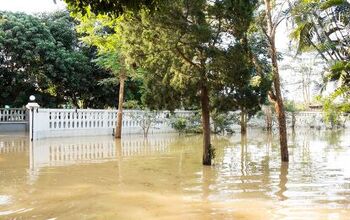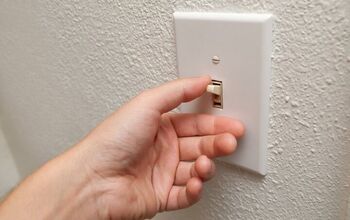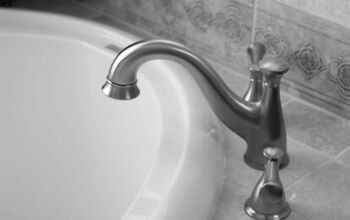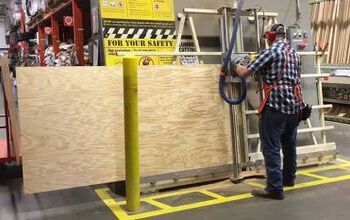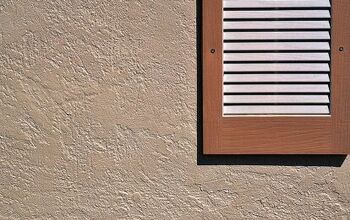Who Is Responsible For Water Line From Street To House?

When you turn your faucet on and water comes out, you think nothing of it. Running water is a commodity in the modern world that we often take for granted. You may not even know where exactly your water comes from. This all changes when you have a main water line leak. You suddenly become aware of how precious running water is, and how expensive water line issues are to fix.
When a water line issue occurs outside the borders of your property, it is normally the municipality’s responsibility to fix it. When the issue occurs on your property, however, as the owner, you are responsible for repairing the problem and paying for it. Homeowners insurance often covers unexpected water line problems that occur on your property, as long as they are reported correctly.
When you are trying to find out who is responsible for the waterline that connects to your house, you may need to do some digging – literally. The location of the waterline issue, whether it is a leak or a break, is the main determining factor in who is responsible. So before you go pointing fingers, you should first find out more about your water line.
Know The Path Of Your Water Line
In order to understand who is responsible for a water line issue, it is a good idea to trace the path of the water line itself. Sometimes your home’s blueprint may have this information. If you do not have access to these types of documents or they are not in the plan, you have another option.
You can use a pipe locator device to trace the water line. Depending on when your line was built, it can be made of metal or other materials. This means using a pipe locator that can locate all types of pipes is recommended.
Trace the pipe from your dwelling all the way to the street. Also, make careful note of your property line. Note when the water line connects with the municipal water meter and then leaves your property. This helps determine who is responsible for a water line issue.
When The Water Line Issue Is On Municipal Property
If you discover the water line issue occurred outside of your property, and in municipal jurisdiction, then the municipality is likely responsible for repairing it. While there are some exceptions, if the water line break is on county property and in county pipes then they should pay.
Water comes from main supply lines that are eventually branched off to individual residences. The main water supply funnels water through the municipal water mains and then to your property border. The entire stretch of the water line from the source to the border of your property is the city or county’s responsibility.
If you notice a leak outside your property line, or do not have running water and are certain the problem did not stem from your property – call the water department immediately.
If you see evidence of the water leak (a gushing pipe break, a large puddle on a sunny day) be sure to document it and clearly show it is not on your property. Major water main breaks are expensive, and it is critical you have all the evidence possible to prove you are not liable.
When The Water Line Issue Is On Your Property
Water lines become your responsibility as soon as they cross onto your property. While you may have had nothing to do with the installation of the water pipes, and the issue may seem to have stemmed from outside your jurisdiction, if the leak is on your property it is on you to fix.
Water often comes onto a property through a water meter. Often the water meter acts as an imaginary line of responsibility as well. Anything on your property from the water meter is on you to maintain and fix. The other side of the water line, heading into the street, is your responsibility.
When The Source of The Water Line Issue Is Uncertain
Sometimes there is a water line issue where the water meter is located, or in a space that is located both on and off your property. In these cases, insurance, and even lawyers may need to get involved.
For example, if the water meter is on your property and has been poorly maintained this can cause problems. If a poorly maintained water meter area causes a leak on either side, the water company may argue that you are at fault due to poor upkeep. Negligence on behalf of either party can often be an argument for fault.
Be sure that you are aware of exactly what role you should be playing in the upkeep of your water line. This can include regular inspections, proper upkeep and responsible usage. If you have questions about how to maintain your water line, seek the advice of professionals in your area.
Check Your Insurance Policy
It can be incredibly frustrating to have to pay thousands of dollars for a water line repair that was out of your control. Luckily, there may be some financial assistance to put you at ease. Many homeowners insurance policies cover unexpected water damage.
This damage often includes underground water lines bursting underground. This means that although the county may not be responsible, you may not have to pay out of pocket for this unanticipated problem. Be sure you know the details of your insurance policy, however, as coverage can vary.
When You Can’t Find The Location of The Water Line Issue
If you cannot find the source of the problem but no there is a problem, call a professional. While you may be worried about getting stuck with an initial plumber bill, this bill will likely be much smaller than the massive damage an ignored leak can cause.
If you are worried about making sure you are calling the right person or taking the right steps, check your insurance policy, or call a representative to make sure you are following the proper procedure.
Don’t Sit On The Problem
Any water leak or broken pipe issue is something that should be handled immediately. These problems do not fix themselves, and are almost certain to get worse over time.
Furthermore, while insurance companies often cover broken pipes and unexpected water line issues, there are some exceptions. Some insurance companies will not cover issues that have occurred slowly over time and are ignored. Addressing your problem immediately can save you money and headache.
Avoiding Water Line Issues On Your Property
You cannot control or be responsible for the water lines outside your property. You can, however, help prevent water main issues on your property. In addition to knowing the location of your water main, there are several steps you can take to limit the chances of a water line issue on your property.
- Prevent Freezing Pipes. If you happen to live in an area with extreme winters, make sure you take the appropriate steps to prevent frozen pipes. Frozen pipes can cause pipes to burst and result in massive unnecessary damage, which you will be liable for.
- Be Mindful When Digging. It may seem obvious, but watch where you stick your shovel. Another important reason for knowing where your water line is located is to make sure you don’t puncture it by mistake.
- Don’t Ignore Water Pressure Problems. Changing water pressure can be a sign that your water line has a leak. Make sure you do not brush this off.
- Investigate Soil Erosion. Soil erosion can be a result of an underground water leak. Be sure you address soil erosion as soon as you notice it.
Who Is Responsible In The End?
The water line that goes from the street to your house is often an afterthought until it bursts. If the water line is not on your property, the odds are it is not your responsibility. When the water line is within your property, however, it is your responsibility to fix it. Keep in mind homeowners insurance often covers unexpected water pipe leaks, as long as they are dressed quickly.

Tom Gaffey is an expert writer who currently resides in Washington D.C. Tom has a passion for real estate and home improvement writing, as well as travel and lifestyle writing. He lived the last twelve years in Hawaii where he worked closely with luxury resorts and event planners, mastering his knowledge of aesthetics and luxury products. This is where he found his passion for home improvement and a keen interest in DIY projects. Currently, Tom resides in Washington D.C, and also working on his debut fiction novel.
More by Tom Gaffey



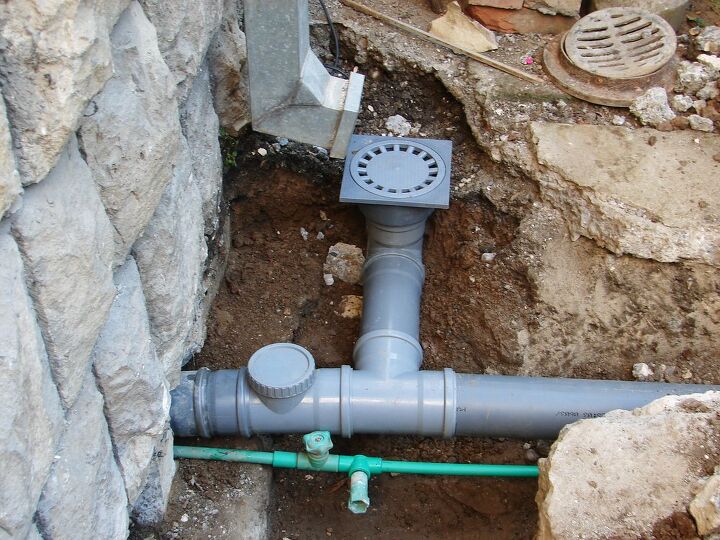









![10 Best Scroll Saws for 2022 [Ultimate Reviews & Buyer's Guide]](https://cdn-fastly.upgradedhome.com/media/2023/07/31/9070684/10-best-scroll-saws-for-2022-ultimate-reviews-buyer-s-guide.jpg?size=350x220)
